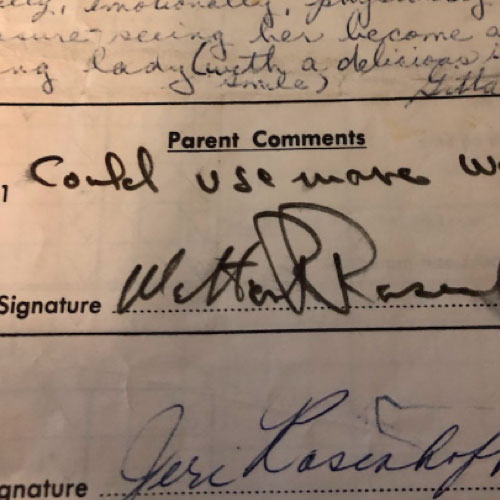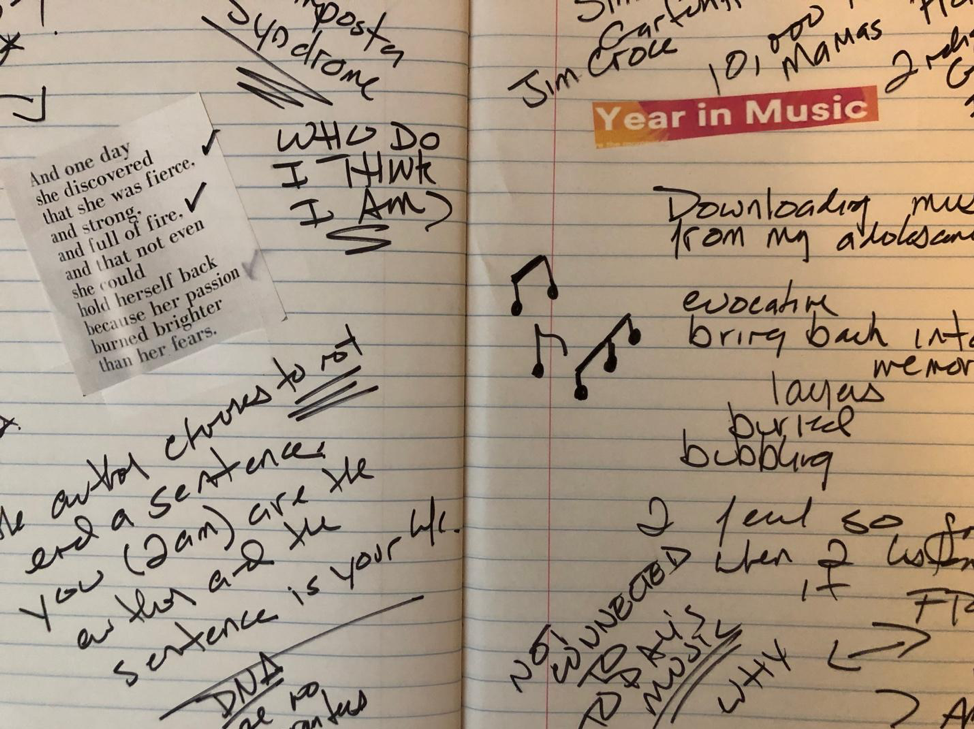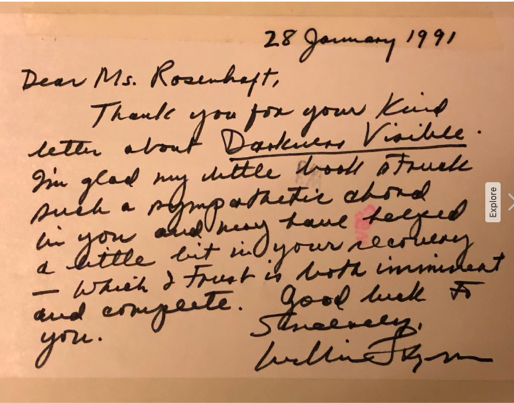
Process
I was eleven years old, in sixth grade and my father, who was drinking at the time, wrote on my report card “could use more work.” I was working hard. I was working to survive. And I almost didn’t.
As a writer, I made my entrance into the story well after the midway point, maybe closer to the end. The reader might not notice me or if she did, wonder why the author had even bothered.
I didn’t write as a child or as a teenager because growing up in a home with an alcoholic father, and a workaholic mother, it never occurred to me to try. Once my father lost his job, he became depressed and stayed home all day. I was terrified of him and avoided doing anything that might pique his interest. I was a child tomboy, then in high school I became a pot-smoking jock. I wrote book reports, but never wrote my own stories. I read voraciously, mostly to escape the chaos that reigned over our home.
I discovered this quote from Rebecca Solnit, in her essay Flight, from The Faraway Nearby.
Ms. Solnit’s writing prompts raw emotion, long put away. This paragraph is akin to suddenly hearing a forgotten song from my childhood associated with an experience that once brought tears. Writers as a group have much in common, regardless of when we started writing.
“Like many others who turned into writers, I disappeared into books when I was very young, disappeared into them like someone running into the woods. What surprised and still surprises me is that there was another side to the forest of stories and the solitude, that I came out that other side and met people there. Writers are solitaries by vocation and necessity. I sometimes think the test is not so much talent, which is not as rare as people think, but purpose or vocation, which manifests in part as the ability to endure a lot of solitude and keep working. Before writers are writers they are readers, living in books, through books, in the lives of others that are also the heads of others, in that act that is so intimate and yet so alone.”

An idea starts with a single word that comes to mind, an innocuous observation or a random image. Timing is everything and nothing. What comes to mind? Write it down.
“What comes to mind?” was my former psychiatrist’s favorite question (she was also my therapist – the rare MD who loves to work with patients), and now I’ve incorporated this phrase into my own vernacular in aspects of my life having nothing to do with therapy. I worked with her for eleven years. She has a thick Hungarian accent which I don’t hear – I listen to her quiet intensity.
My writing is heavily influenced by my experience in therapy, especially with this psychiatrist, Dr. L. We began working together in 2005 and I began studying memoir two years later while in the midst of a severe depressive episode. I’d been ill since 1984, seen a plethora of therapists and Dr. L. was the first who continually confronted me about my self-destructive behavior— not angrily, merely directly.
Writing has been instrumental in my healing. Once, in the hospital, a therapist called me a “professional patient.” As my writing voice emerged, my patient voice receded. Gradually, my writer identity replaced my patient identity.
As my degree of insight into my illness progressed, the improvement in my mental health became visible in my writing. My essays more accurately reflected my experience and my voice became true to my psyche. I don’t use euphemisms, my writing is not lyrical. My pieces are honest, sometimes dark and gritty. The highest compliment I hear is that when I write as a person who has suffered from severe mental illness, is readers don’t perceive me as self-pitying.
I do believe in the link between mental illness and creativity. This association has been studied mostly in individuals who have been diagnosed with bipolar disorder, but there’s too much art, music, dance and writing among all of us – people with other psychiatric illnesses to exclude everyone else.
It was essential for me to have an creative outlet where I could express myself. Before I put words to paper, I carved them into my skin with a razor blade. “FAT.” “COW.” Faint white lines are still visible on both of my forearms. It feels better to put words to paper.
Would I have chosen not to have been mentally ill? The experience of my illness has changed me profoundly – for the better. I’ve emerged a more resilient and a more confident person. At the helm of the sixth grade class in which my father condemned me to extra homework, was Mrs. Diner. One day as I took the pass to use the restroom, she decided to direct all eyes forward and humiliate me for taking the pass too often. Predictably, I started to cry and I almost peed.
I’ve come a long way from the front of that classroom, though I continue to feel sorry for that young girl. Writing has helped me develop a thicker skin as rejections are an inherent part of the process. My passion for writing about mental health and recovery has two primary purposes; the intent to let others know recovery is possible and to let them know they are not alone.
Writing has become an integral part of me. I need it to survive. When I go too long without writing, having to tend to other minutiae of life, I get itchy inside and out, as though my body is having a reaction.
Writing soothes me.
Memoirs on mental illness I love in no particular order

Darkness Visible by William Styron
When I read “Darkness Visible,” I was incredibly moved by Mr. Styron’s words. I wrote to him telling how much it meant to me that he could also suffer from depression – and he wrote me back!
The Noonday Demon: An Atlas of Depression by Andrew Solomon
A tome about all aspects depression; The evidence-based realities of this psychiatric illness interspersed with Mr. Solomon’s own story of his severe depression – and his relationship with his father.
This Close To Happy: A Reckoning with Depression by Daphne Merkin
I’ve been following Daphne’s writing about depression ever since her article “My Life in Therapy” was published in the NY Times Magazine in 2010. In 2016, I had the opportunity to take a one-time master class in memoir from her at Hunter College in Manhattan.
The Center Cannot Hold by Elyn Saks
Ms. Saks story and achievements are amazing. There’s a scene in the book forever embedded in my brain. It’s Ms. Sak’s last session with Mrs. Jones and she is clinging to a steam pipe. I was terrified that would be me.
Life Inside by Mindy Lewis
Prejudice Alert! A courageous and incredible memoir. I had the privilege of studying memoir with Mindy for two years. What I learned from her about the craft of writing has been invaluable.
Welcome To My Country by Lauren Slater
Ms. Slater’s writing is breathtaking; that she is a psychologist who struggled with mental illness feels as though I’m looking into a cracked mirror. An instructor encouraged me to reread There Spheres in Welcome to My Country as I was struggling with a piece. Once again, I was blown away.
An Unquiet Mind by Kay Redfield Jamison
Amazingly, bipolar disorder is one diagnosis I escaped. Regardless, An Unquiet Mind was stunning and I still took away hope that I had the strength to recover from my depression.
Undercurrents: A Life Beneath The Surface by Martha Manning
This is a little gem of a book. I read it and reread it, praying for myself to have the same happy ending Dr. Manning had from her unyielding depression. She is a clinical psychologist who writes about herself with dark humor and a sharp wit. I cried and I laughed repeatedly.
